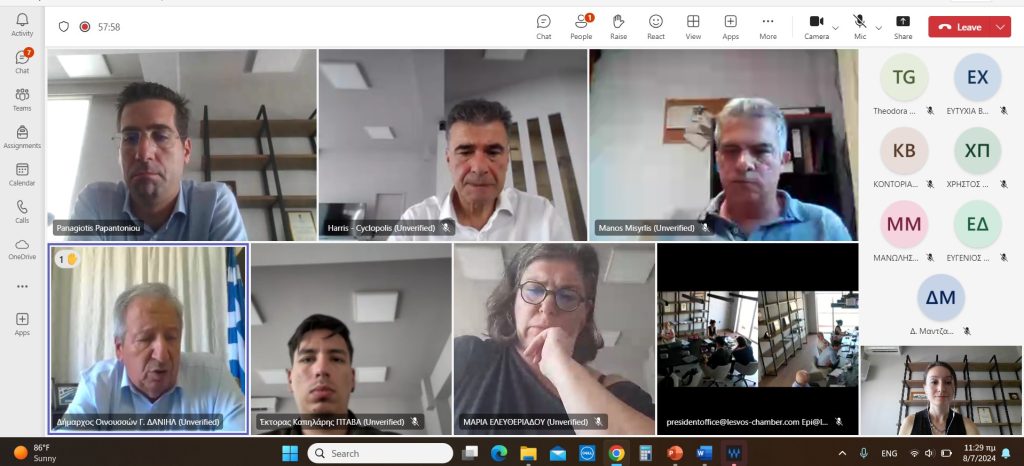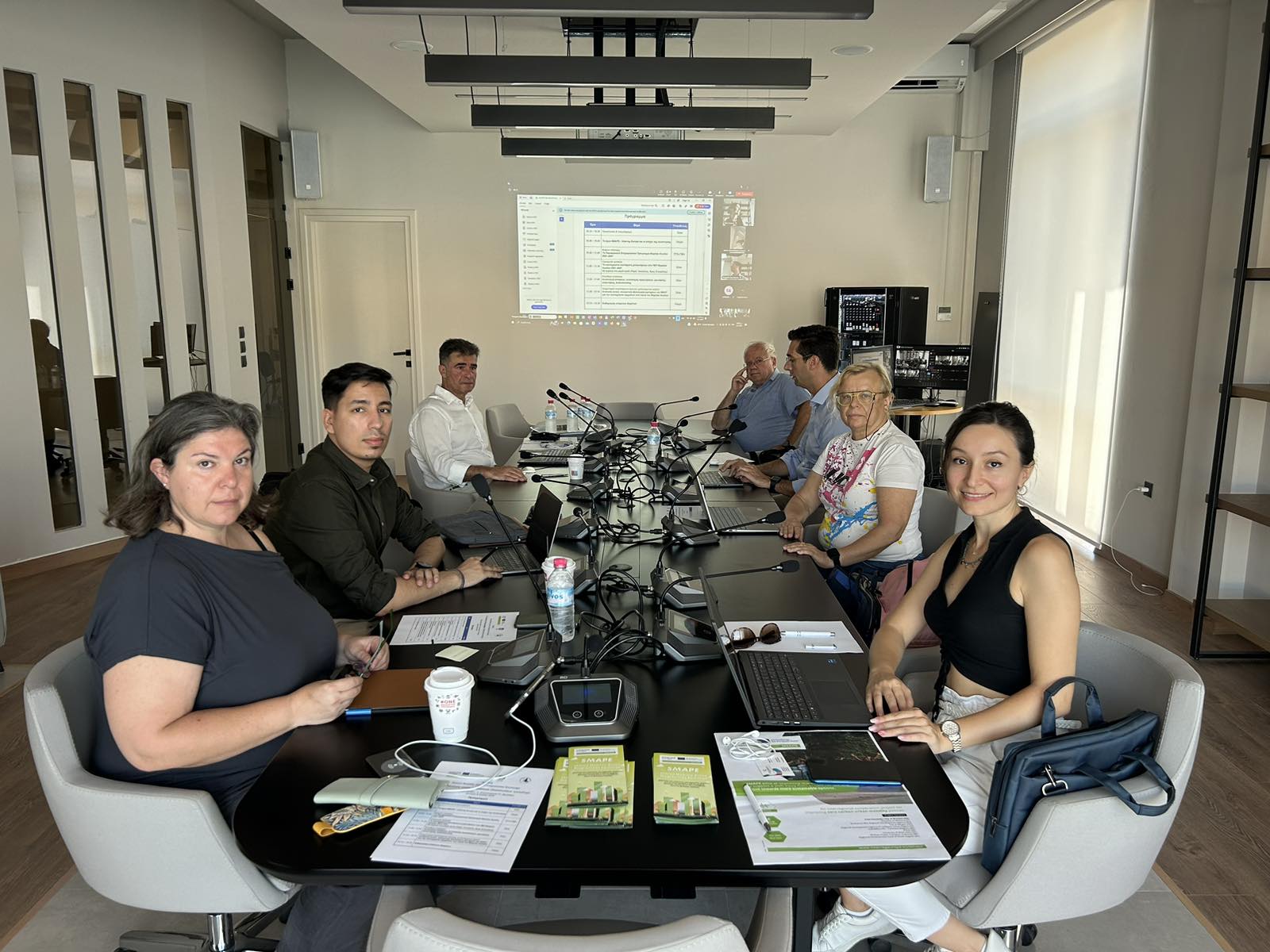Continuing the goal of engaging and activating the local Authorities for shared mobility in the North Aegean Region, the 3rd Greek stakeholders’ meeting was realized on Monday morning, the 8th of July 2024, in the frame of SMAPE project of Interreg Europe Programme. Taking into account the special morphology of the North Aegean Region and the limitations of travelling to other islands for a few hours on a working day, the meeting took place in a hybrid format, following the approach of the previous similar workshops. It was organized by the Project Partners from Greece, the University of West Attica (PP7-UniWA) and the Regional Development Fund of North Aegean Region (PP10-RDFNA).
With 15 participants coming from academia, local governance, shared mobility providers, this 3rd intraregional SMAPE meeting was a great success. It is worth highlighting that, due to the intensive efforts of the Greek SMAPE project partners, a significantly high percentage of representation of the islands and local Authorities of the North Aegean Region was achieved, as high-level executives from 7 out of its 11 Municipalities attended, among others. More specifically, apart from the project partners, the following persons participated actively:

- the Mayor of Oinousses,
- both the Vice Mayor and the Scientific Associate of the Mayor of Psara,
- the Vice Mayor of Limnos,
- the Director of Business Planning of Western Lesvos,
- the Deputy Director of Planning and Organization of Eastern Samos,
- the Head of Technical Services Dept. of Western Samos,
- the Head of Technical Services Dept. of Chios,
- representative of North Aegean Region responsible for SMAPE project,
- the General Director of Cyclopolis P.C. as a shared mobility provider presenting the industry perspective.
Therefore, the emphasis placed by all on the sustainability of the islands is evident and this meeting was an important step in the direction of improving policies for the effective implementation of shared mobility towards that common target. In this frame, the objectives of the meeting were to clearly outline the real conditions that vary in each island, the existing mobility policies/studies on local level,the experiences on launching or participating in a call published by ROP or other financial tools for the promotion of shared vehicles and the creation of micromobility hubs in smaller islands, which is the idea that emerged during the discussion of the previous stakeholders’ meetings.
After a round of introductions to define the profile of the attendees, the introduction to the theme of the meeting concerning shared systems of sustainable mobility was carried out through the relevant presentation of UniWA. The presentation included, among others, the objective, activities and core structure of the SMAPE project. The benefits for the islands through their active involvement in activities such as this stakeholders’ workshop, were also described.
Afterwards, a representative of RDFNA analyzed the conclusions extracted so far from the communication with the Managing Authority of the Regional Operational Program 2021-2027 of North Aegean and other financial tools in order to effectively influence their funding directions in the context of the SMAPE project.
Driven by the above, the participants both onsite and online, taking the floor, were asked to refer to their experience and describe the situation of shared systems in their islands, to identify the challenges and the most important factors that should be addressed. Actively contributing to the content of the discussion, they highlighted the actions and transport studies that have already been carried out in their territories, while emphasizing their Municipality’s vision and expressing their interest for the next actions in favor of sustainable mobility. The peculiarities and needs of smaller islands, like Oinousses, Psara, and Aghios Efstratios, were further analyzed becoming the point of attention. In addition, a session was provided for brainstorming and flee-float discussion so that all relevant viewpoints and aspects were adequately covered.
Lastly, UniWA presented the questionnaire that has been developed in the frame of the ongoing stakeholders’ survey that refers to collecting the specialized input of the local bodies in North Aegean Region. The participatory completion of the survey took place referring to the gap analysis, the comparative assessment of selected criteria through pairwise comparisons, as well as qualitative input regarding strengths, weaknesses, opportunities, and potential risks for shared mobility in North Aegean islands. The meeting was finalized by setting out next steps and expectations.

